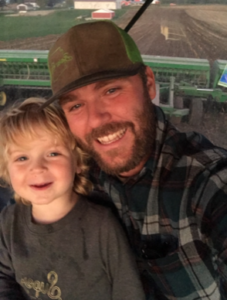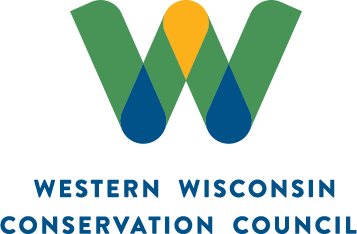 Spencer Anderson joined the board in December 2021. He farms approximately 300-400 acres of cropland and pasture in Pierce County with silt loam soils. He grows corn, soybeans, rye, alfalfa and cover crops. He also has registered Hereford cattle and a commercial sheep flock.
Spencer Anderson joined the board in December 2021. He farms approximately 300-400 acres of cropland and pasture in Pierce County with silt loam soils. He grows corn, soybeans, rye, alfalfa and cover crops. He also has registered Hereford cattle and a commercial sheep flock.
Being a member of WWCC has enabled him to glean experiences and conservation practices from other members and encourages him to try new things. Seeing other’s experiences and data strengthens his belief that he's trying to do the right things. There’s a mix of farmers and companies that he enjoys learning from online videos about soil health and cover crops. He also bounces ideas off local NRCS representatives.
The biggest challenge he has faced with implementing a conservation practice is having patience - change takes time and seeing results won’t be instant.
Advice he would give to someone who wants to try a new practice but isn’t sure where to start is to start small and tie it to measurable results. Not every measurable data point should be about yield.
Some unanticipated outcomes he experienced was earthworm activity and counts appeared to increase in fields where he planted full season cover crops that were grazed ahead of row crops.
Something he learned about planting green for corn was it is absolutely crucial to front-load nitrogen.
On Anderson's farm, some of the fields have slopes and are more prone to erosion. So, 6-7 years ago he started implementing conservation practices. He knew he wanted the degradation to end.
Being a member of WWCC has helped him understand conservation practices better by seeing what other members are doing. It shows him that there is no one “cookie-cutter” approach, but that conservation can mean different things to everyone.
Having a sustainable farm is important to Anderson because he hopes his children want to continue to farm. He plans to do everything he can to leave the soil in a better condition for the next generation.
